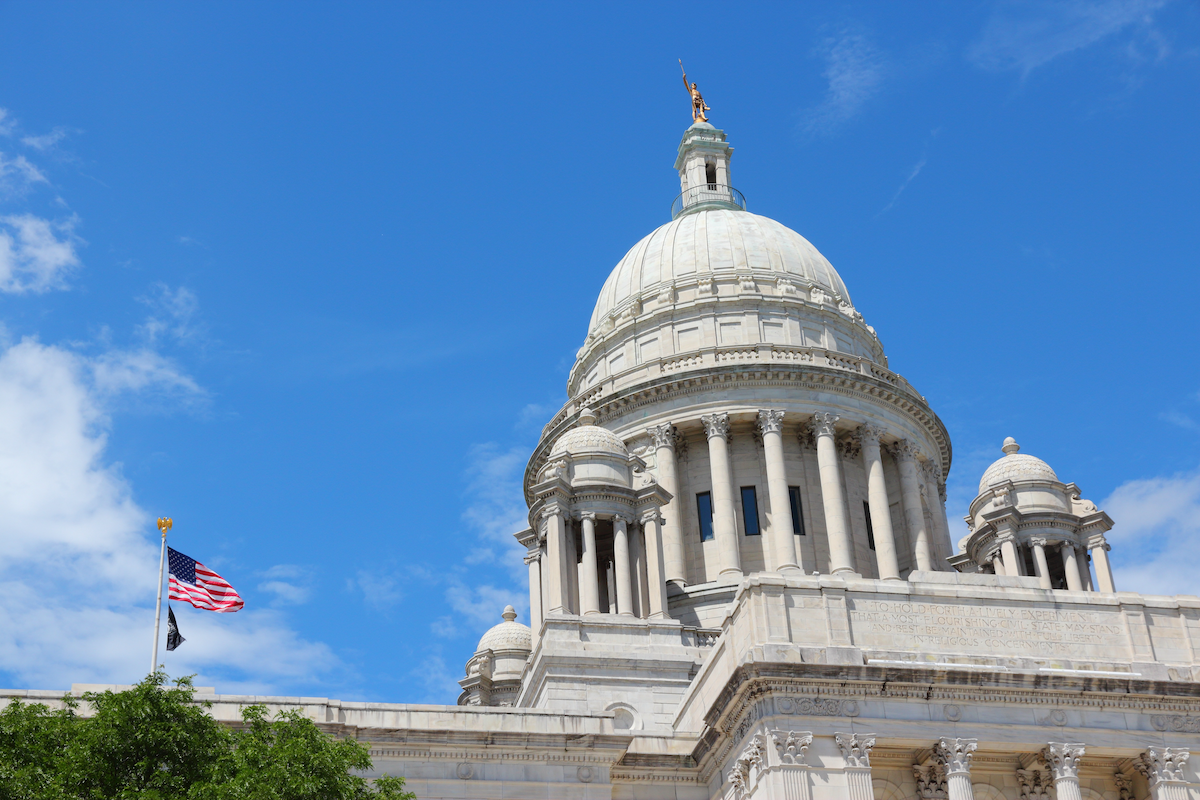KINGSTON, R.I. — Oct. 19, 2023 — A sweeping new opinion poll by researchers from the University of Rhode Island and the polling firm YouGov provides insights into Rhode Islanders’ attitudes toward public education, trust in government and elections, political media consumption, and a host of other issues.
The poll is the first from the Rhode Island Survey Initiative, a newly launched effort by a team of URI researchers to gauge public opinion across the state. Led by URI’s Harrington School of Communication and Media; Department of Political Science; College of Arts and Sciences; and Social Science Institute for Research, Education, and Policy, researchers plan to issue one poll each year, surveying a wide range of issues impacting life in the state.
“This initiative grew out of a lack of regular opinion polling specific to Rhode Island and the issues that most impact the state,” said Ammina Kothari, director of the Harrington School and professor of journalism. “Funding interdisciplinary initiatives with empirical outputs that can be integrated into our teaching and shared with the wider community is a good use of our resources. We hope the survey data will be a tool for other researchers, policymakers, the media, and others interested in understanding where Rhode Islanders stand on key issues.”
For the first iteration of the poll, the researchers surveyed via the internet a representative sample of 500 Rhode Islanders ages 18 and older between Aug. 17 and Sept. 6, 2023. The full poll results can be found on the initiative’s website.
Among the key findings:
- Attitudes toward public education: A solid majority, 68%, said state or local funding levels for K-12 education should increase. Forty-two percent of respondents said they were very or somewhat satisfied with their community’s K-12 schools, while 21% said they were not very or not at all satisfied. Education initiatives recently introduced in the Rhode Island General Assembly—including a constitutional right to education, universal pre-K, and free lunches in all schools—enjoyed widespread support.
- Rhode Island political issues: Most respondents favor increased state-level spending on education, housing, infrastructure, and aid to the poor. Only 17% view the Rhode Island economy as strong or somewhat strong. Seventy-three percent said it was important for Rhode Island to invest in blue economy initiatives like offshore wind farms and other economic sectors linked to the ocean or coasts.
- Rhode Island politics and elections: Slightly more than half of respondents said they have a great deal or a moderate amount of trust that Rhode Island elections are fair. Regarding the governor’s approval rating, 27% of respondents approve of how Gov. Dan McKee handles his job, while 27% disapprove and 45% said they neither approve nor disapprove or don’t know. Trust in government was low at all levels. Only 10% of respondents said they have “a great deal” or “a lot” of trust in the federal government; 11% in state government; and 14% in local government.
- Media and politics: Most survey respondents, 58%, say they have at least a moderate amount of trust in traditional media outlets, while fewer, 31%, trust the news they get on social media. Sixty-nine percent of respondents said they get their election news from local sources, 66% said they use national sources, and 26% use international sources.
Faculty and students from URI identified the survey’s issue areas, formulated questions, and analyzed the results. The poll was administered by YouGov, an international internet-based market research and data analytics firm. The poll has a margin of error of plus or minus five percentage points.
More polling to come
Researchers associated with the Rhode Island Survey Initiative plan to conduct at least one poll per year. While each poll will include different focus areas, repeated questions across polls will give researchers a chance to measure how attitudes in Rhode Island evolve over time.
Julie Keller, an associate professor of sociology and director of the Social Science Institute for Research, Education, and Policy, said the survey initiative reflects the institute’s goal of providing evidence-based insights to communities across Rhode Island.
“The initiative enhances the institute’s experiential learning opportunities for URI students while strengthening our ability to help inform decision-making across the state,” Keller said. “It’s exciting to consider the many potential avenues for collaborative projects among faculty, students, community-based organizations, businesses, and government agencies.”
The project has provided experiential learning opportunities for URI students, who helped to select issues to be included in the survey and craft questions.
“We’re able to give our students hands-on experience in the public opinion research process,” said Emily Lynch, an associate teaching professor of political science. “For students to be able to apply what they learn in the classroom in a real-world setting is incredibly valuable.”
One of those students was David Rudolph, a senior political science major who worked on the survey through a College of Arts and Sciences Student Fellowship, which provides funding for students to pursue summer research and creative opportunities.
“I couldn’t think of a better capstone for my college career,” Rudolph said. “Knowing that citizens, scholars, and elected officials will use data from a project I helped create is truly rewarding. To have a role in shaping public policy has real-world implications that’ll last well beyond my graduation.”

